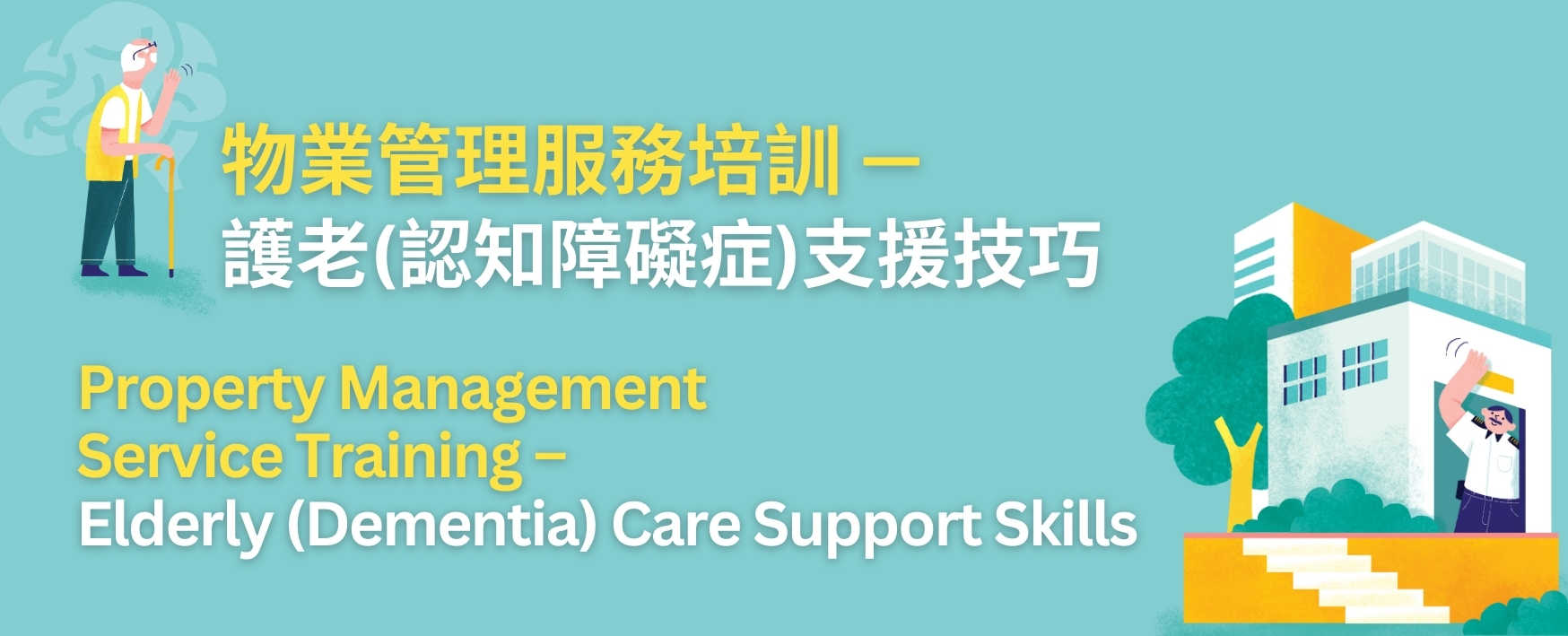There is a direct relationship between population ageing and the prevalence of dementia. In response to the challenges of an ageing population, the Hong Kong government has actively promoted the policy of “Ageing in place as the core, institutional care as back-up” in recent years. This approach aims to provide home care services for the elderly, allowing them to live independently, comfortably and with dignity in their familiar homes and communities. “Ageing in place” not only involves care provided by individuals, spouses and children, but also focuses on improving community services and facilities to support the elderly in their daily lives. In addition, public participation is also an essential part of the process. Society should encourage the public to understand the difficulties and needs of people with dementia with empathy, ultimately transforming them from “patients” to our “friends with dementia”.
In view of this, the Jockey Club Design Institute for Social Innovation (J.C.DISI) of the Hong Kong Polytechnic University launched the PolyU Jockey Club “Operation SoInno” Season 15 “Shaping Dementia Care Culture” project in January 2023, and organised the “One from Hundred Thousand” co-creation workshops and social innovation symposium. Following these events, J.C.DISI, in collaboration with the Hong Kong Institute of Certified Property Managers, developed a vocational training course named “Property Management Service Training – Elderly (Dementia) Care Support Skills” as the social innovation action project. This project aims to address the current gap of training courses that integrate knowledge of dementia and property management in the market. It is designed to equip the industry practitioners with necessary knowledge and skills to assist elderly residents in need, to enhance the professionalism of their services, and to build an inclusive and supportive community environment.
Process
To understand the challenges encountered by the property management practitioners when communicating with elderly residents and to design suitable training content that meets their actual job needs, the design team conducted interviews with 24 practitioners from different positions before launching the course. The interview revealed that the respondents generally had a positive attitude toward taking courses related to dementia and believed it would benefit their work.
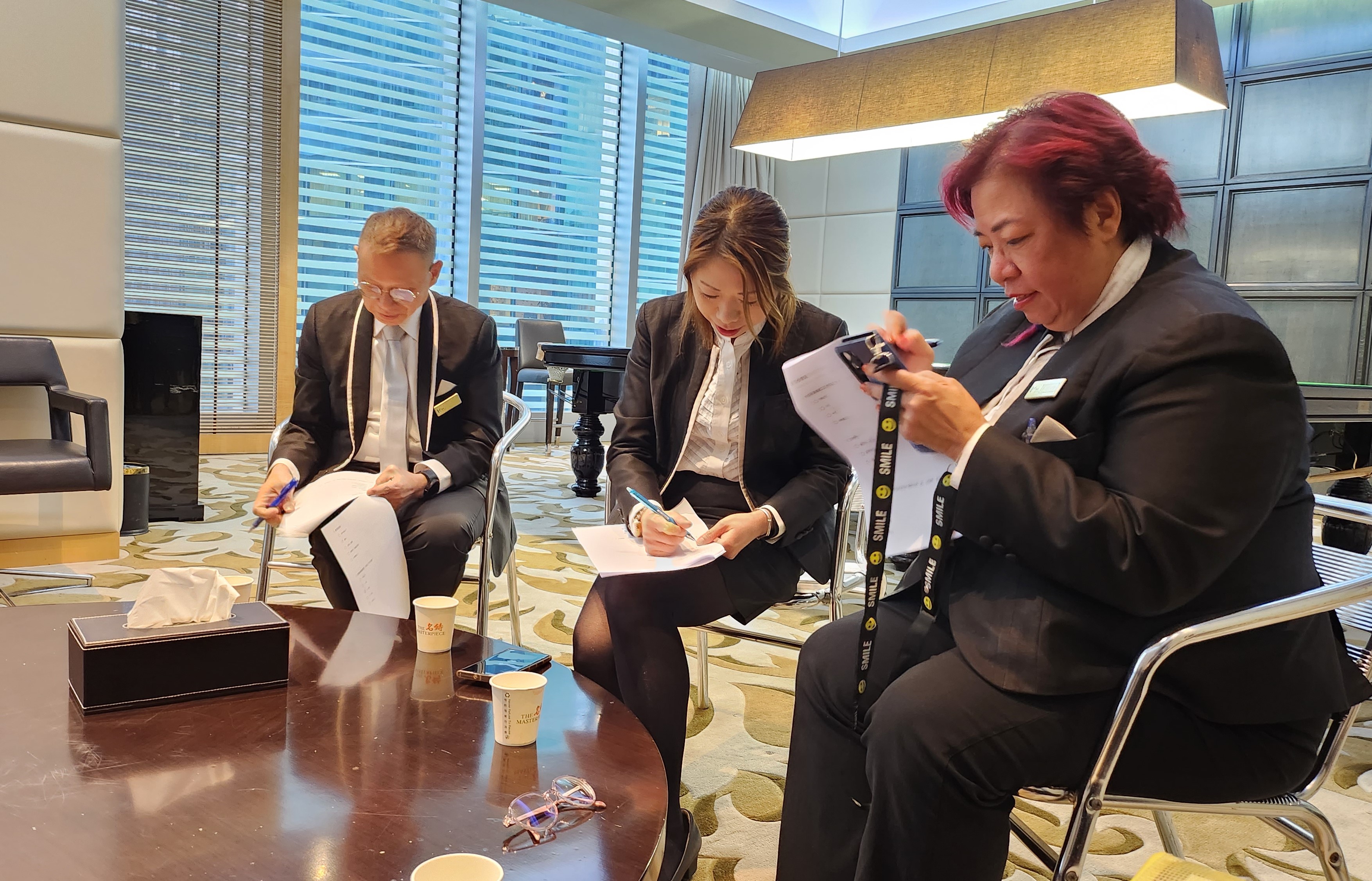
Although the respondents generally expressed their willingness to interact with the elderly, most felt it was “difficult to communicate” and “didn’t know how to assist” when faced with incidents such as getting lost and interpersonal conflicts due to a lack of understanding of dementia. Additionally, they had negative impressions of people with dementia, perceiving them as “easily irritable”, “impatient”, “forgetful”, and “behaving strangely”. Coupled with the lack of standard operating procedures in the industry for dealing with dementia, our respondents often only reported difficulties to their superiors instead of trying to understand the underlying reasons for the people with dementia’s behavioural problems and addressing their needs appropriately.
The course, with reference to the interview result, the design team intended to bring about changes to the housing estates and the communities, while also striving for a balance between meeting the learning needs of participants and the psychological needs of people with dementia. We therefore proposed the following design principles:
- Fostering participants’ empathy: Enhancing understanding of communication skills, behavioural and emotional issues related to people with dementia. It teaches how to communicate empathetically with patients;
- Learning ways to manage emergencies: Explaining how to handle situations that might be related to people with dementia, such as getting lost, interpersonal conflicts, and household accidents, to ensure the safety of both patients and the community;
- Knowing the community resources: Acquiring knowledge about community resources that support people with dementia, enabling participants to recommend appropriate services to residents in need;
- Creating a “dementia-friendly” housing estate: By improving housing estate facilities and optimizing workflow, the goal is to create a supportive environment;
- Planning “dementia-friendly” activities: Introducing how to organize various community activities that are suitable for people with dementia, fostering social engagement.
The course was divided into 3 phases and 9 modules based on the participants’ work nature and learning abilities: Basics, Professional Practice, and Management Skills.
- “Basics” phase: 6 hours, 3 modules covering fundamental knowledge of dementia, basic communication skills, and community resources for supporting patients;
- “Professional Practice” phase: 12 hours, 4 modules focusing on practical skills for addressing patients’ emotional and behavioral issues such as getting lost and interpersonal conflicts;
- “Management Skills” phase: 6 hours, 2 modules explaining how to establish a dementia-friendly housing estate management system.
Project Outcomes
In August 2023, J.C.DISI started to cooperate with the Hong Kong Institute of Certified Property Managers, and completed a training course consisting of 9 modules and totaling 24 hours between March and May 2024. The course received positive feedback from the property management industry and was successfully included as a recognised core course by the Property Management Services Authority in its Continuing Professional Development Scheme. With the ageing population, there is an increasing demand for related training in the industry, and this collaboration perfectly meets this need. The course received a strong response from the property management practitioners, with registration nearly tripling our expectations. In the end, 54 practitioners from 34 property management companies, working in 38 different types of housing estates across Hong Kong, were admitted to the course.
Most participants were property management officers and managers; a few were frontline staff, such as security guards and property management assistants. All participants completed at least one-course phase, with half (27 learners) successfully completing all three phases. Participant attendance was ideal, with an average attendance rate of 84%. Despite the challenges of working in shifts and having workplaces across Hong Kong Island, Kowloon, the New Territories, and even remote outlying islands, the participants' positive attitude towards learning was inspiring. They adjusted their work schedules and travelled long distances to attend classes, demonstrating their high regard for the training course.
Interactive teaching methods can bring participants a new learning experience. Through virtual reality (VR) games, participants can step into the shoes of people with dementia and gain a deeper understanding of daily challenges and needs. Group activities can also encourage communication among participants and consolidate their learning.
The results of the post-course questionnaires show that participants were satisfied with the course and rated the course very highly, with similarly high approval rates across different phases. Participants generally agreed that the knowledge they gained could help them address difficulties in their work, with ratings ranging from 89% to 94%. They also felt that they could apply the knowledge and skills learned in their actual work environment, with ratings of 89% to 93%. Overall, satisfaction with the course content and activities was rated between 92% to 97%.
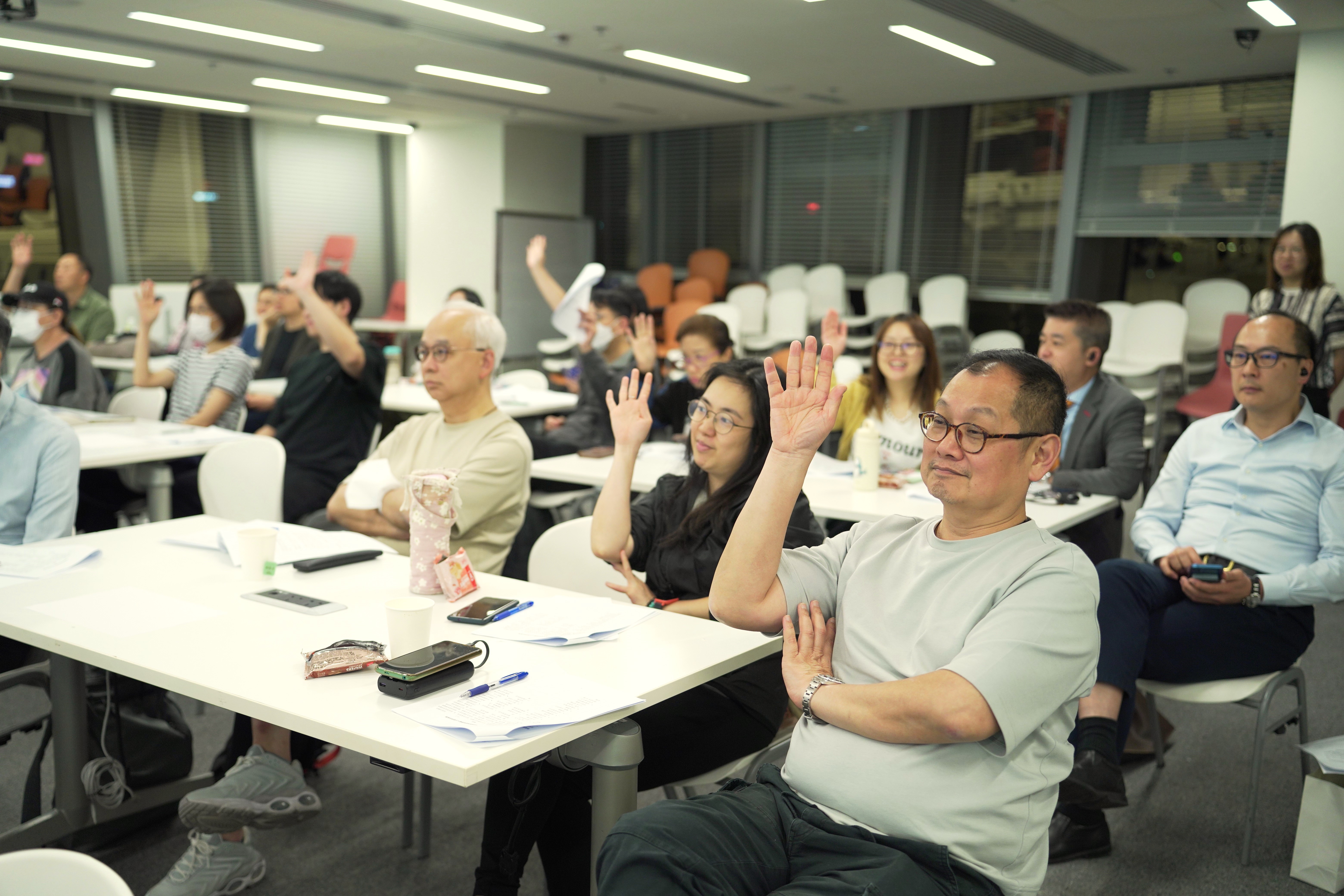
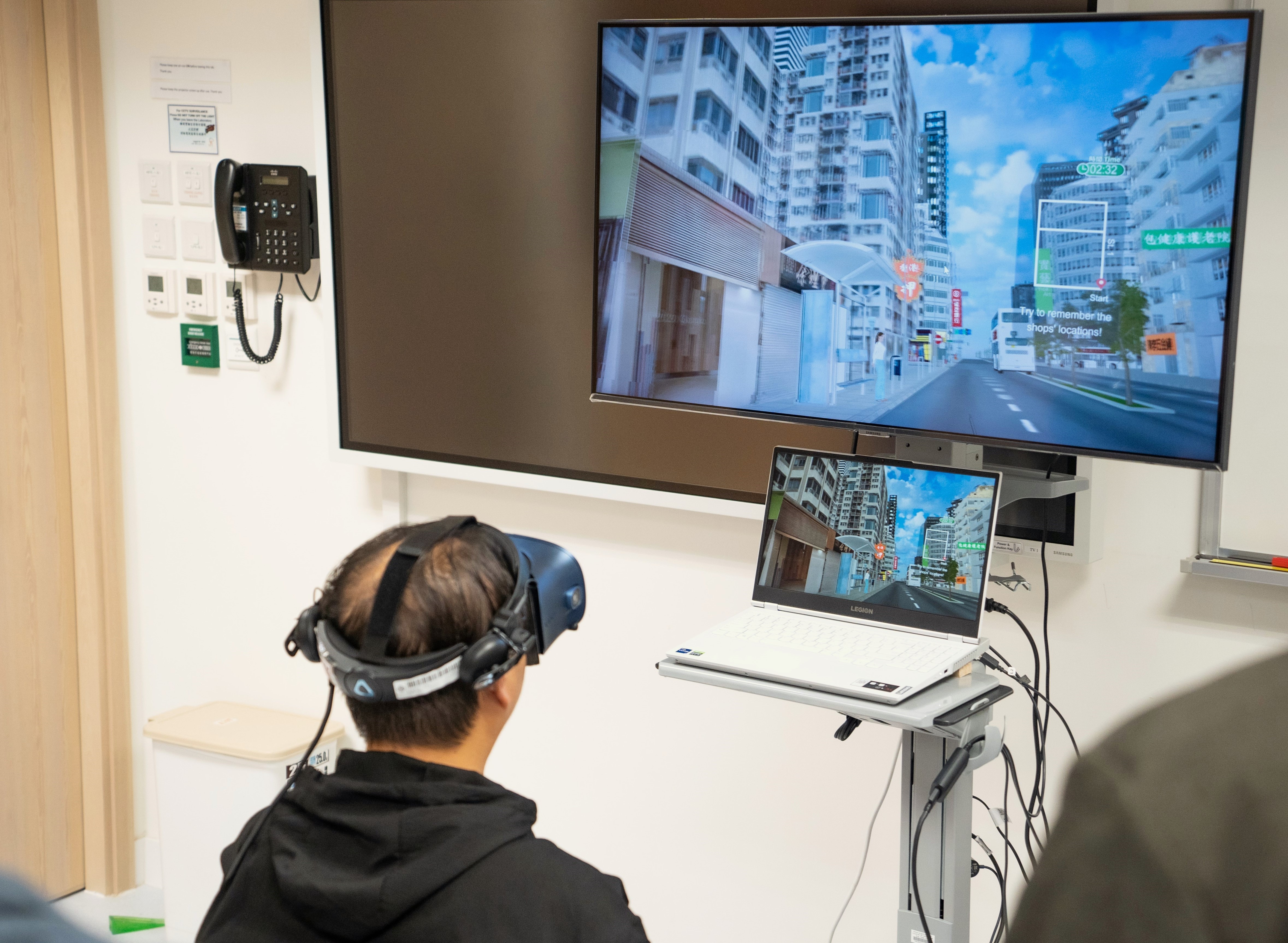
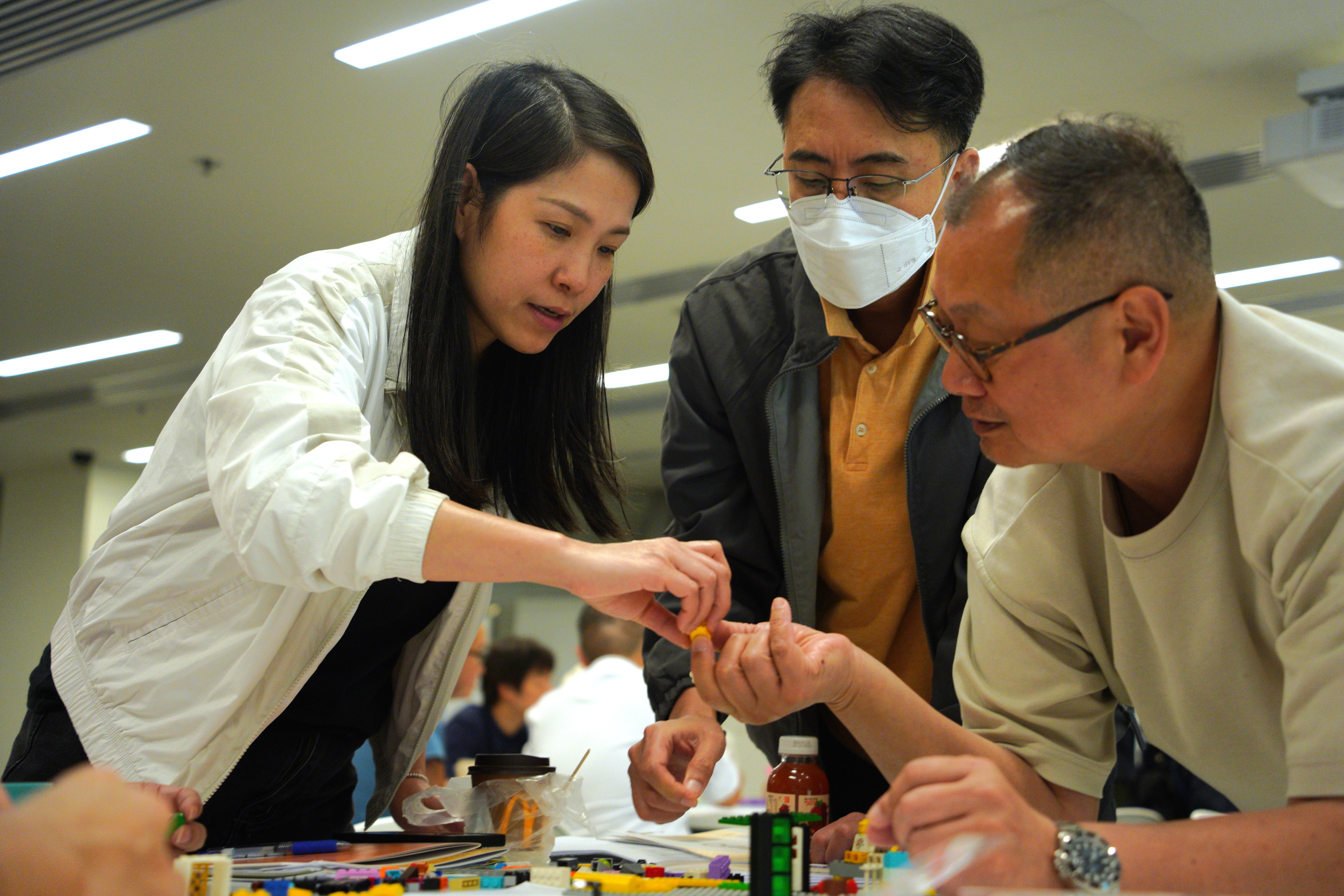
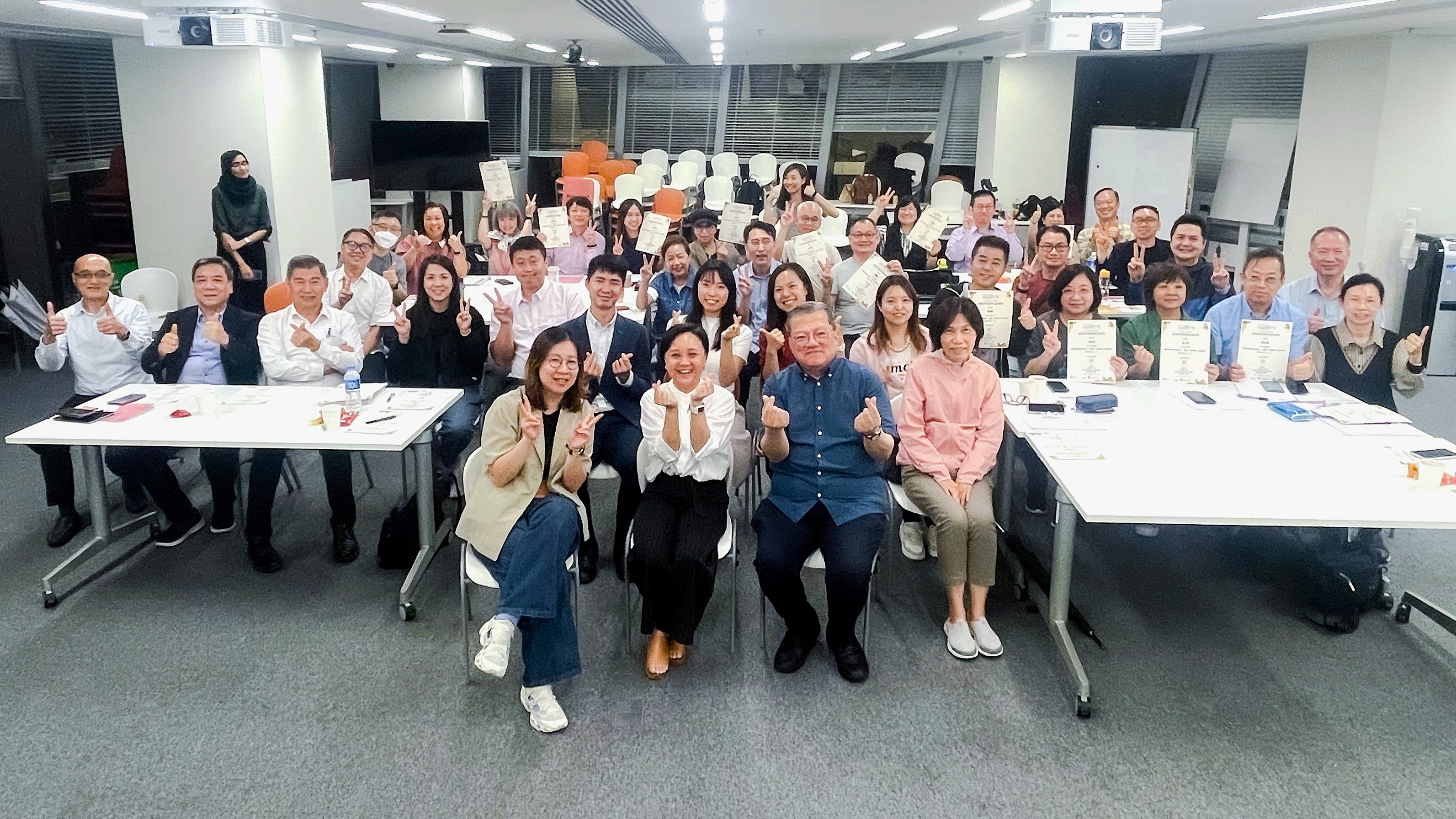
Participants’ Overall Rating
|
Agreement Percentage |
|||||||
|
Basics |
Professional Practice |
Management Skills |
|||||
|
The knowledge I learned from the classes can help me solve work-related difficulties. |
89% |
90% |
94% |
||||
|
I can apply the knowledge and skills I learned from the classes in my actual work environment. |
89% |
89% |
93% |
||||
|
Overall, I am satisfied with the content and activities of this course. |
92% |
91% |
97% |
||||
Cindy (Pseudonym), Property Management Officer, Green Form Subsidised Home Ownership Scheme
“I used to think they were mentally ill; I didn’t know that dementia would bring them all these impairments.”
“Sometimes when we (the management office) contact family members of elderly residents due to complaints, the family members are usually resistant to communication in order to protect themselves. In the past, this would make me so angry that I would slam the phone down. However, after this course, I now try to use communication skills. I first make sure not to be defensive and no longer blame the family members; instead, I explain things to them patiently.”
“An elderly resident often calls and comes to the office to find me, repeating the same thing over and over. I didn’t know how to handle it before, but now I do.”
Henry (Pseudonym), Housing Estate Manager, Private Housing Estate
“After attending the course, I learned that there are many causes of dementia, and there are different symptoms and stages. I now understand that patients often struggle to express themselves. While we often say we should care for the elderly, but patience alone is not enough, skills are also required.”
Anna (Pseudonym), Operations Manager, Head Office of a Security Company
“One of the lessons taught us how to handle wandering seniors, such as how to ask questions and observe their responses to determine if they might be affected by dementia. (Now) I would encourage my colleagues to take a more proactive approach, otherwise, we might miss opportunities to prevent seniors from getting lost.”
The success of this course has given us confidence in developing property management training programmes focus on dementia-friendly practices in the future. We are pleased to observe positive shifts in students' attitudes, along with enhancements in their knowledge and practical skills. In terms of housing estate management, we anticipate that the industry will be more inclined to foster stronger ties with the community and integrate a dementia-friendly approach into their management practices.
